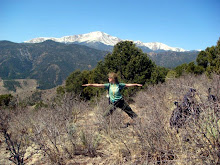There is a spate of recent films spilling the beans about the corporate takeover of the global food economy. Many are available online or through Amazon and Netflix.
Please watch some of these. Show your kids. Host a screening in your community. Donate a copy or two to the local library or public school system. Encourage teachers to show the films. Spread the word! Subvert the dominant food paradigm! Refuse to play along anymore!
Food, Inc., the first enviro-food movie to be screened in major theaters across the country, has brought food consciousness in the United States to a new level.
Fresh: The Movie is the perfect follow-up screening to Food, Inc. because it shows the flip side—positive change being created by farmers, students, thinkers, and business people in the U.S. today.
French Fries to Go documents Telluride, Colorado's quest to run city buses on recycled fryer oil.
Garden Cycles: Faces From the New Farm is the story of three women on a three-month bicycle-powered tour of urban gardens throughout the Northeast.
Polycultures: Food Where We Live looks at communities in Northeast Ohio that are coming together to grow a more sustainable, just, and local food system.
The Greening of Southie is about Boston's first LEED-certified residential green building and the way it affected a community.
Eating Alaska is a documentary by a vegetarian filmmaker who moves to Alaska and marries a hunter. The film looks at the ethics behind food choices and how politics, society, religion, and taste all play a role.
Sustainable Table: What's on Your Plate? traces West Coast food production from field to table.
To Market to Market to Buy a Fat Pig tours outstanding farmers' markets from Baltimore to Hawaii.
The Real Dirt of Farmer John looks at one man and his family farm. Farmer John and his story will have you reconsidering stereotypes about farmers.
The Garden examines the largest community garden in the U.S., 14 acres of green in South Central Los Angeles, and the fight to keep it there.
The World According to Monsanto looks at this behemoth of a multinational agricultural biotech corporation and their dominance of patents on genetically engineered seeds and pesticides.
Seeds of Deception focuses on how genetically engineered food is making its way into our daily diets.
Bad Seed: The Truth About Our Food looks at who is controlling the world's food supply and the consequences of genetically modified food on health.
The Future of Food examines the complex web of market and political forces that affect what we eat and what we will eat in the future.
Food Matters takes a look at the often overlooked connection between food and our nation's current state of health. With the health-care debate raging, watching this film feels extra-timely and important.
King Corn investigates the staggering scale of the corn related food economy in the U.S. in an entertaining way. While you're at it check out Carey's two part quest to go corn free.
Two Angry Moms shows two angry (and awesome) moms striving to improve school lunch with simple changes, like having fresh fruits and vegetables included on cafeteria trays.
Our Daily Bread is shot like a high end art-house film sand hows minute after minute of shocking footage of industrial food production and high-tech farming.
Super Size Me now feels like a classic among all these newer films. Watch as Morgan Spurlock spends 30 days eating nothing but McDonald's while investigating the companies' extremely long reach into school cafeterias and countries around the world.
Media That Matters: Good Food is a collection of 16 short films on food and sustainability.
The Greenhorns is an upcoming film on enterprising, hopeful, and young farmers that are bringing an infusion of youth and a wave of excitement to the one of the oldest professions of all.
The End of the Line chronicles how demand for cod off the coast of Newfoundland in the early 1990s led to the decimation of the most abundant cod population in the world, how hi-tech fishing vessels leave no escape routes for fish populations and how farmed fish as a solution is a myth.
Mondovino explores the impact of globalization on the various wine-producing regions. It pits the ambitions of large, multinational wine producers, in particular Robert Mondavi, against the small, single estate wineries who have traditionally boasted wines with individual character driven by their terroir.
We Feed the World is a film by Austrian filmmaker Erwin Wagenhofer about food and globalization, fishermen and farmers, long-distance truck drivers and high-powered corporate executives, the flow of goods and cash flow – a film about scarcity amid plenty.
McLibel is a story of two activists who took on McDonald's in the longest trial in English history. They won.
The Cove follows a team of activists and filmmakers as they infiltrate a heavily-guarded cove in Taiji, Japan where more than 20,000 dolphins and porpoises are being slaughtered each year and their meat, containing toxic levels of mercury, is being sold as food in Japan, often times labeled as whale meat.
The Power of Community - How Cuba Survived Peak Oil tells the story of the Cuban people's efforts to feed the population and create a low-energy society after losing access to Soviet oil in the 1990s.
Information from the Serious Eats website. Thank you, Serious Eats!
Wednesday, August 12, 2009
subvert the global food paradigm!
Posted by
Marie Walden
at
5:55 PM
![]()
Labels: Activism, Big Food, Big Government, Health
Subscribe to:
Post Comments (Atom)


No comments:
Post a Comment